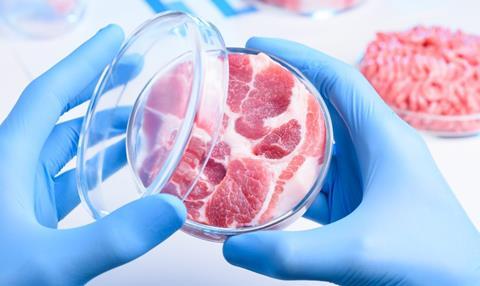The Government has unveiled its £2 billion engineering biology plan, which will see more funding put towards cultivated meat research in the UK.

The Government's £2 billion plan will "harness the power of biology" according to the National Vision for Engineering Biology, delivering new crop varieties and eco-friendly fuels as well as researching cultivated meat.
Minister for Science, Research and Innovation Andrew Griffith MP revealed the plan, and said: “Engineering biology is, in many ways, the future of science: using engineering to harness the power of nature to overhaul what is possible – from the treatment of disease to how we sustainably produce food and fuel.
“I am determined to ensure that the UK remains at the cutting-edge of this exciting field. This £2 billion vision sets out how we will bring all the levers of investment, policy and regulation to bear in ensuring that, safely and responsibly, we seize the potential for engineering biology breakthroughs to boost our economy, create jobs, and improve everyone’s quality of life.”
The Department for Science, Innovation and Technology has set out six priorities for delivering the benefits engineering biology:
- Target public investment towards engineering biology R&D, investing £2 billion over the next 10 years
- Invest in UK infrastructure to reduce costs of potential scale-ups
- Grow and retain a "diverse talent pool" to match demand from academia and industry
- Work across Government and with all relevant regulatory bodies to ensure the UK's regulatory landscape will help engineering biology-derived products to reach the market
- Work with Government to "spearhead the adoption of engineering biology in the wider economy"
- Make the UK a "world leader in responsible engineering biology innovation" by 2030.
Steve Bates OBE, CEO of the UK BioIndustry Association (BIA), said: “Engineering biology is a transformative technology that will enable us to tackle some of our biggest challenges, from genetic diseases to climate change and feeding a growing population. It is fundamental in driving the biorevolution that will transform our global society and unlock economic growth in the years to come.
The Department for Science said that Government would lead an "open dialogue" on the benefits, limitations and risks of the technology.
This story was originally published on a previous version of the Meat Management website and so there may be some missing images and formatting issues.









